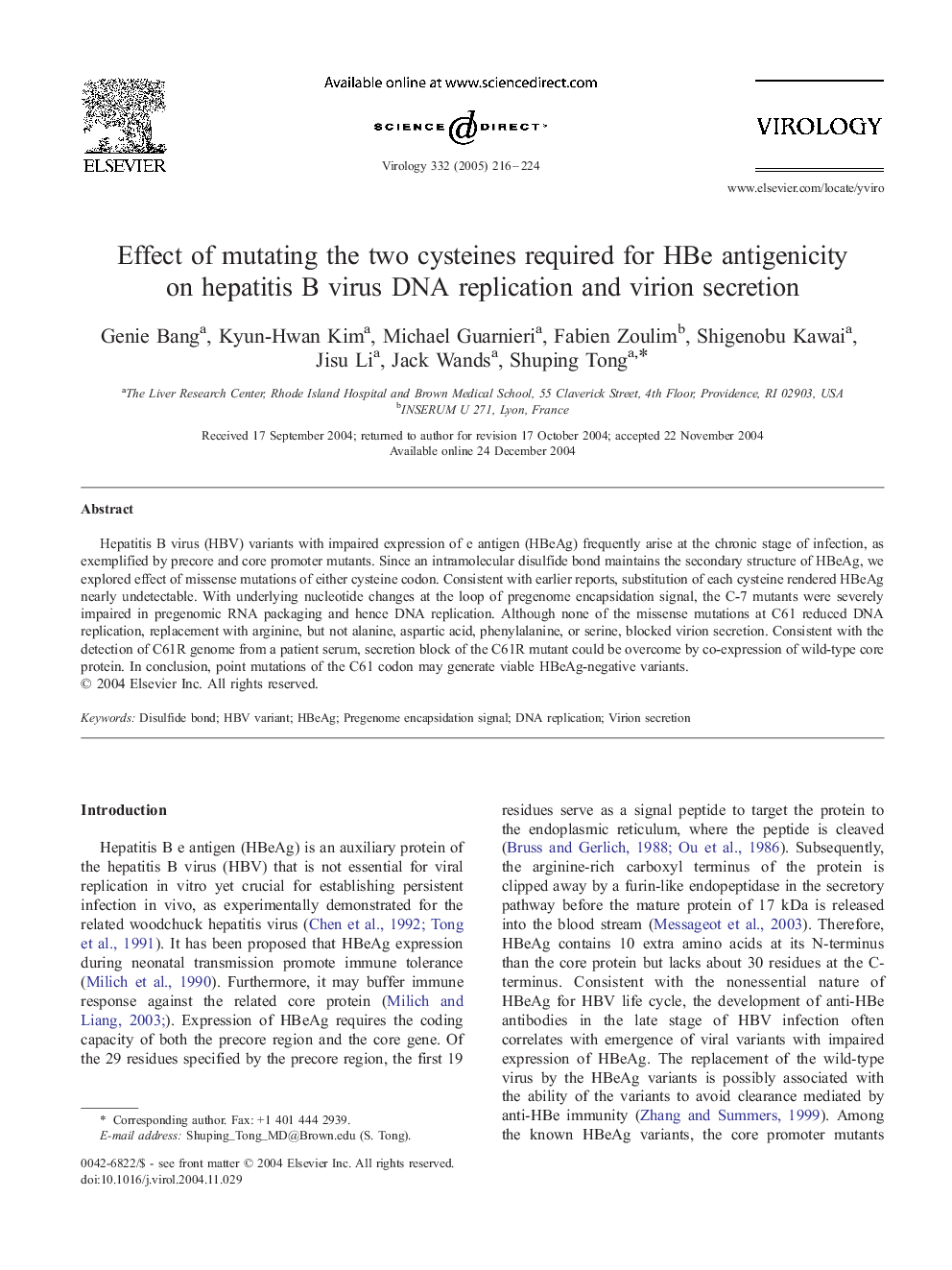| Article ID | Journal | Published Year | Pages | File Type |
|---|---|---|---|---|
| 9287125 | Virology | 2005 | 9 Pages |
Abstract
Hepatitis B virus (HBV) variants with impaired expression of e antigen (HBeAg) frequently arise at the chronic stage of infection, as exemplified by precore and core promoter mutants. Since an intramolecular disulfide bond maintains the secondary structure of HBeAg, we explored effect of missense mutations of either cysteine codon. Consistent with earlier reports, substitution of each cysteine rendered HBeAg nearly undetectable. With underlying nucleotide changes at the loop of pregenome encapsidation signal, the C-7 mutants were severely impaired in pregenomic RNA packaging and hence DNA replication. Although none of the missense mutations at C61 reduced DNA replication, replacement with arginine, but not alanine, aspartic acid, phenylalanine, or serine, blocked virion secretion. Consistent with the detection of C61R genome from a patient serum, secretion block of the C61R mutant could be overcome by co-expression of wild-type core protein. In conclusion, point mutations of the C61 codon may generate viable HBeAg-negative variants.
Related Topics
Life Sciences
Immunology and Microbiology
Virology
Authors
Genie Bang, Kyun-Hwan Kim, Michael Guarnieri, Fabien Zoulim, Shigenobu Kawai, Jisu Li, Jack Wands, Shuping Tong,
